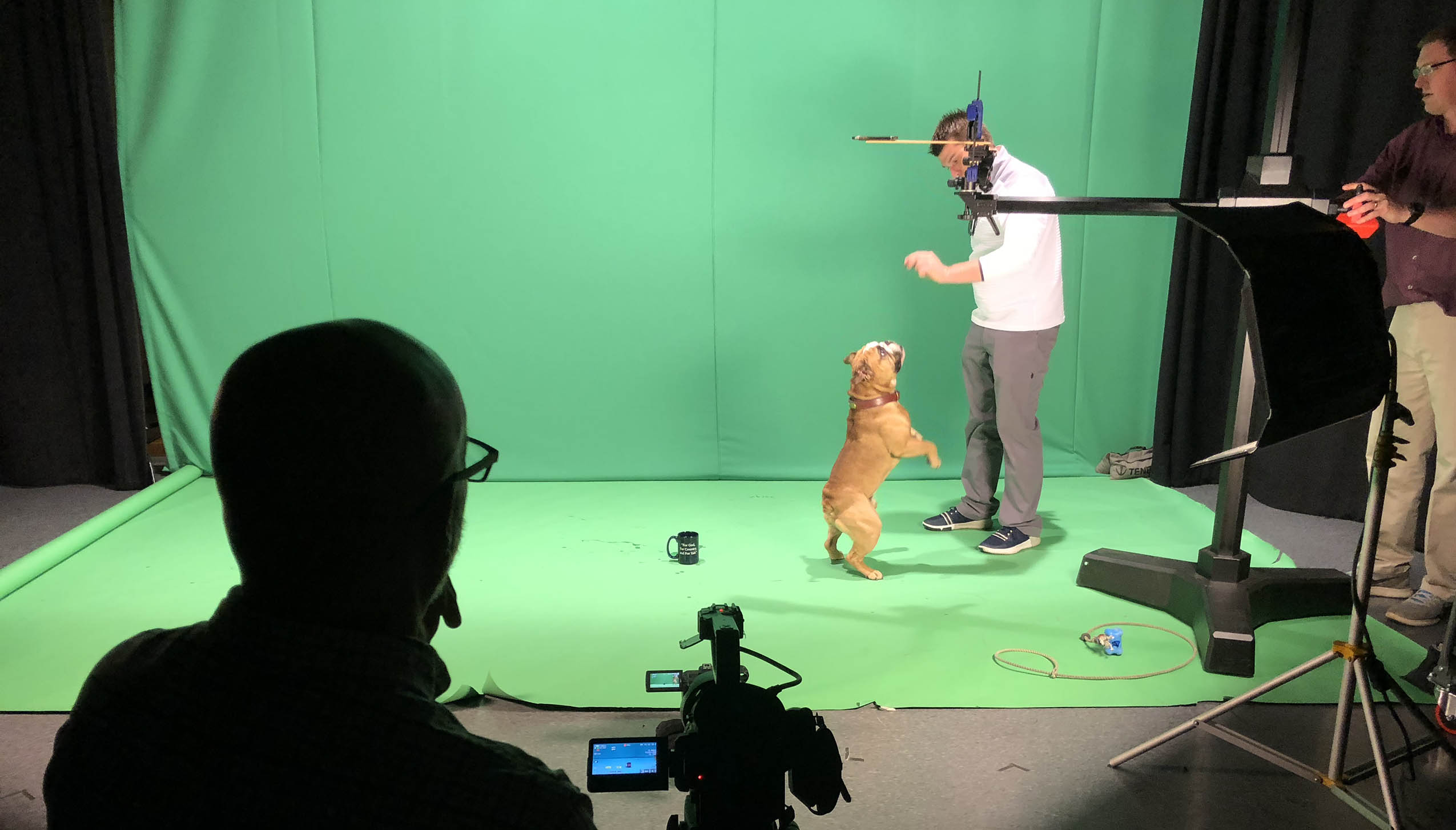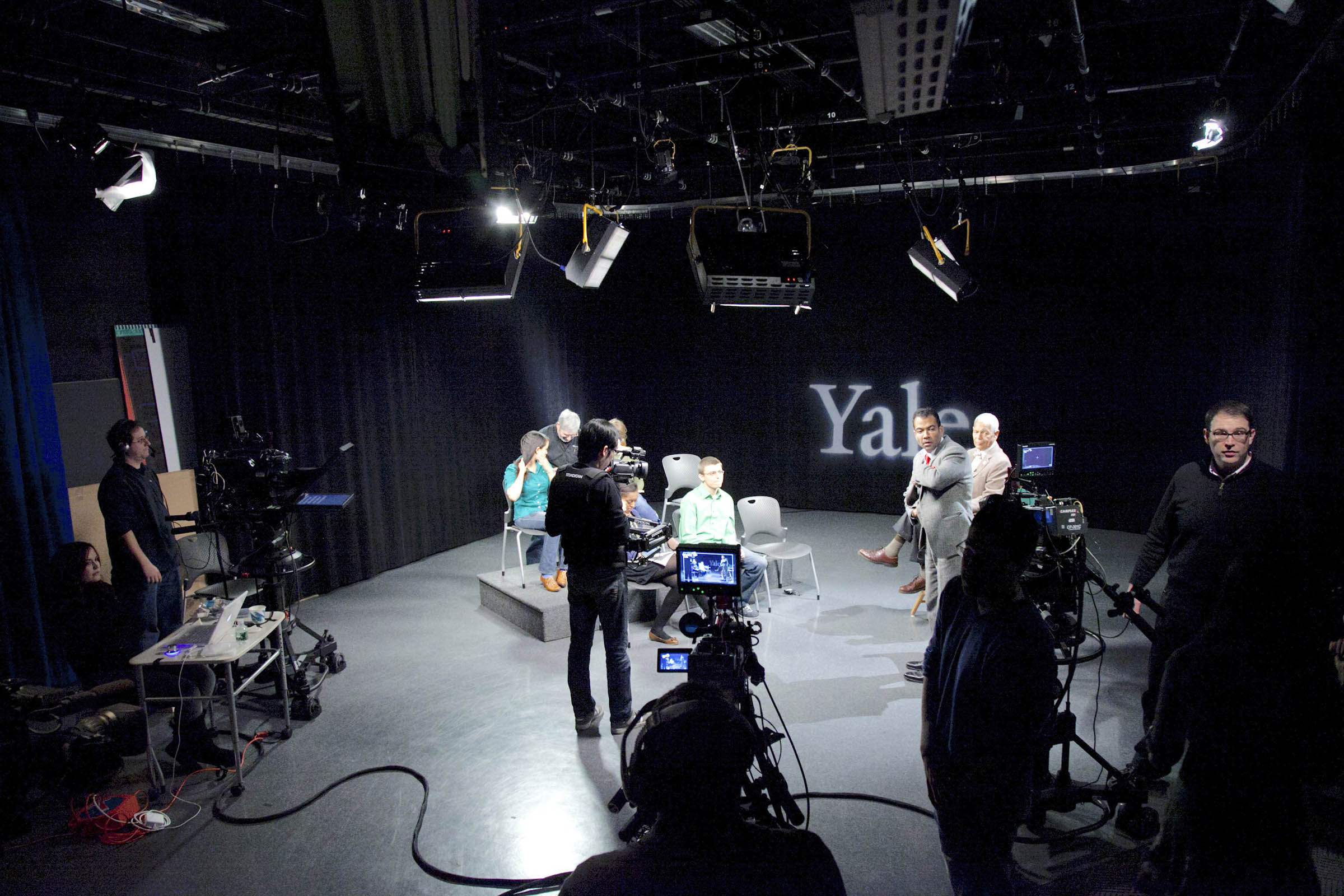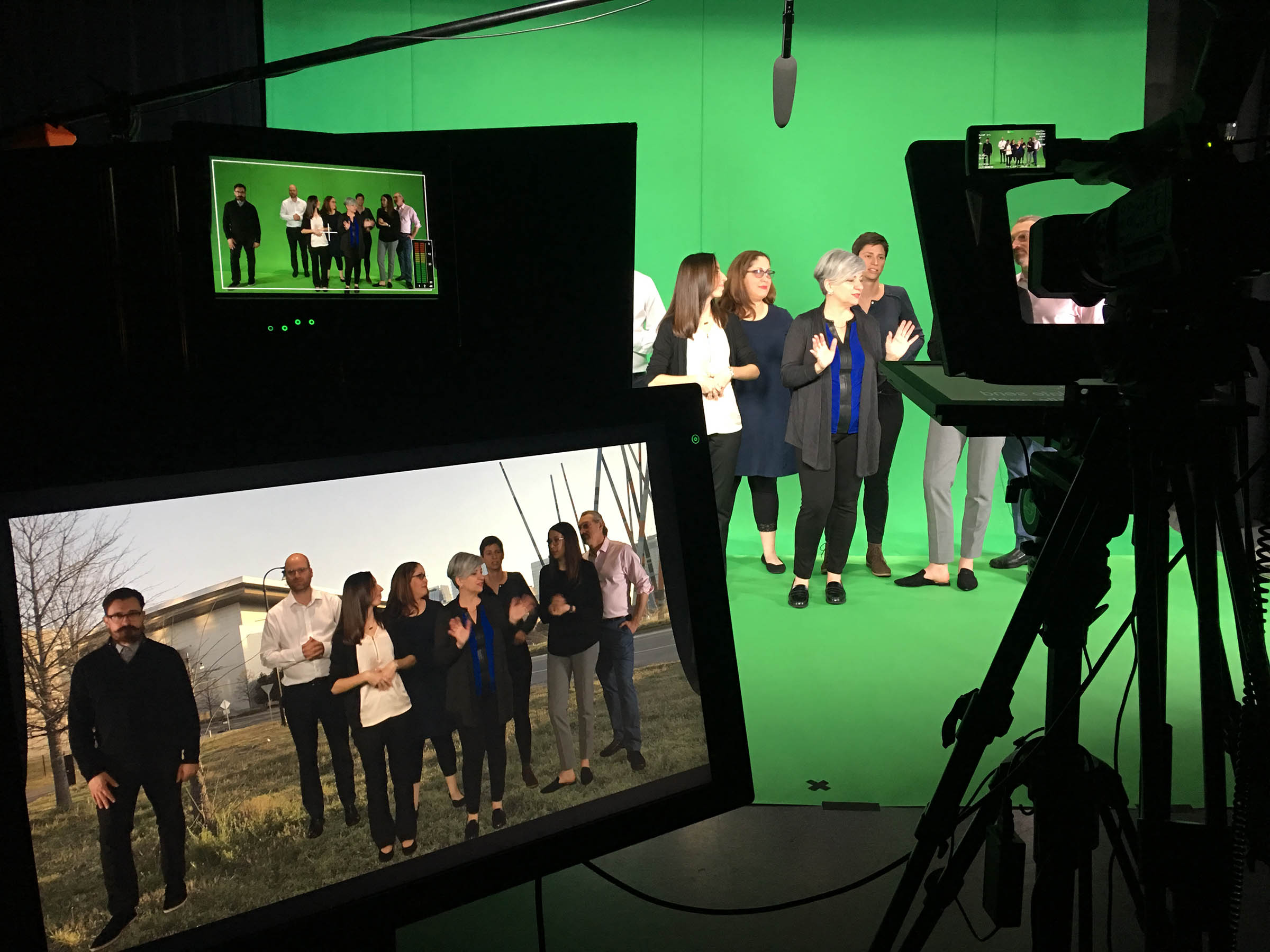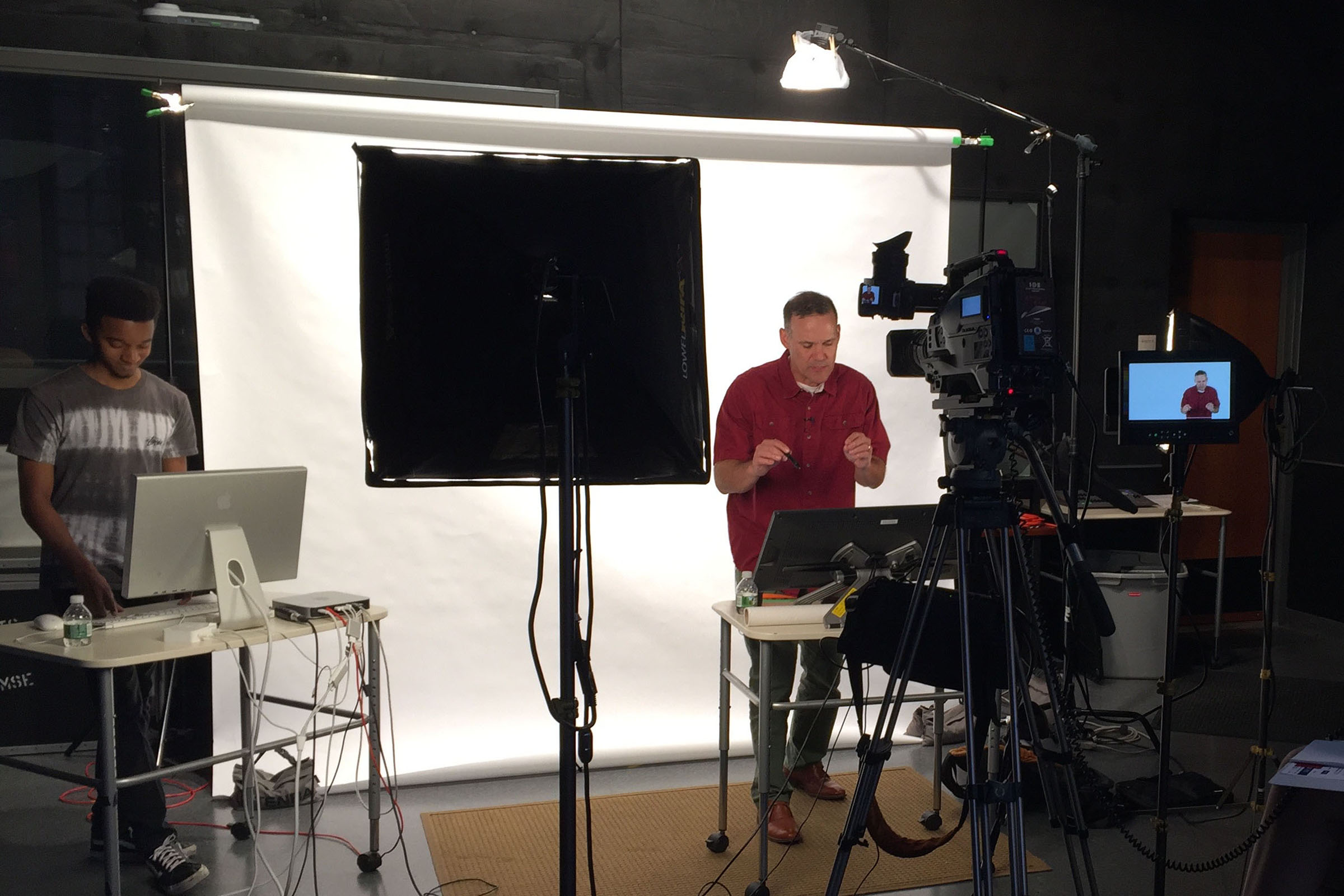Staff at the Poorvu Center produce hundreds of videos, podcasts, broadcast TV appearances, and other recordings each year. Through a collaborative production process, content will be delivered effectively, creatively, and in line with institutional values.
Production Stages
The most successful production projects begin with a thorough pre-production planning and discussion phase. Our team is eager to understand your goals and further our mission to share Yale’s great teaching with the world.
- Schedule a planning meeting. Review your goals, timeline, and project strategy to set a clear foundation.
- Schedule a site visit. Evaluate the filming location to understand opportunities and constraints.
- Confirm timing. Align on the amount of material, production schedule, and launch date feasibility.
- Coordinate with stakeholders. Identify everyone involved in the project from service providers, vendors, or collaborators and clarify technical responsibilities.
- Plan a test shoot. Practice delivering your content on camera and build confidence in a low-stakes environment.
- Agree on funding. Finalize compensation and/or charging arrangements before production begins.
- Discuss Distribution. Discuss where and how you expect your content to be shared so we can deliver the right formats and meet platform requirements.
It’s your time to shine! Here are a few simple ways to set yourself up for your on-camera experience:
- Practice your presentation. Rehearse out loud to smooth transitions, internalize your material, and feel more relaxed on camera. Even a quick run-through can make a big difference.
- Organize your materials for video. Adapt your content to support your delivery during the recording process. You may need to revise slides, create annotated scripts, or prepare visual aids that work well on screen.
- Dress for the camera. Choose clothing that matches the tone of your content and looks good on video. We may suggest outfits that work with lavalier mics or maintain consistency across clips.
- Picture one student. Speak to the camera as if you’re explaining a concept during office hours—warm, direct, and personal.
- Pause regularly. Remember you don’t need to be perfect. We’ll guide the process, and it’s normal to stop, repeat a line, or adjust the setup to get the best result.
After filming wraps, your project enters post-production. Our team will handle editing, graphics, audio cleanup, and visuals to help your material come to life. As the on-camera presenter, you may be asked to:
- Review the first cut. Review drafts so you can give feedback on accuracy and overall tone.
- Record pickups. If a section needs to be rephrased or clarified, we may schedule a short follow-up recording.
- Confirm visuals. Provide feedback on images, titles, or animations that support your message.
- Approve the final version. Before anything is published or shared, you’ll have a chance to confirm that everything looks and sounds right.
Once your project is complete, our team will handle distribution through the appropriate Yale channels or provide a finalized file if you plan to share it independently. While we manage the technical side, here are a few things to keep in mind:
- Sign a release form. Agree to Yale’s standard terms for all public-facing media.
- Approve metadata. Draft or approve titles, descriptions, thumbnail images, links, and credits.
- Share with your networks. Promote your published project through professional or departmental channels.
- Brainstorm outreach opportunities. Collaborate with our team or campus partners to amplify your work.




Create Virtual Worlds with Green Screen
Create Spaces for Conversation
Show Everyone Onscreen
Deliver a Dynamic Demonstration
What would you like to record?
Share your idea with our production experts.